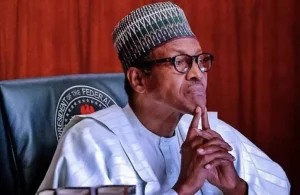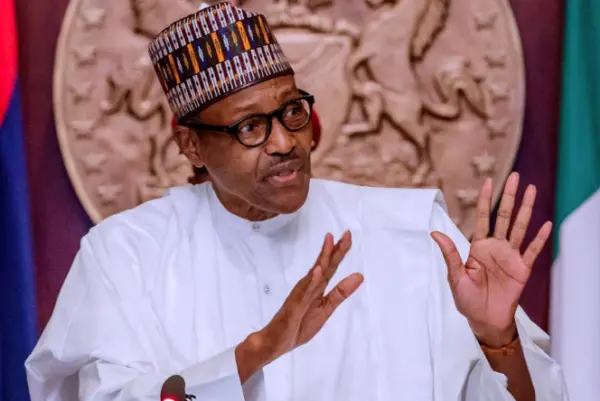One of the goriest sights to behold in the world is seeing people groan under poverty in the midst of plenty. As a country, Nigeria has no business being poor. The country is evidently blessed by nature with abundant natural resources, energetic human capital, a fantastic climate, and one of the greenest landscapes anyone can find on the planet. Yet, in the midst of all these, Nigeria now has the highest number of poor people in the whole world.
The challenges Nigeria is experiencing today did not start with the current maladministration, it was the cumulative effects of leadership failure over the years, but the truth is that President Buhari’s maladministration blew them off the hinges. His lack of ideas and vision sank the country deeper into the ditch that the country may never recover from. Anyone who eventually inherits the country which is currently on life support will have a lot of work on his hands.
In seven and half years, Buhari’s ineptitude has completely destroyed the country and he is not showing signs of slowing down. From a battered economy to an unpardonable insecurity level down to collapsing infrastructure, Buhari has dealt Nigerians a completely bloody nose.
The Nigerian economy has never had it this bad in its history. It is true that the Naira has been depreciating over the decades, however, the rate at which the currency depreciated under the clueless government of Muhammadu Buhari was insanely frightening. It completely lost control.
Read Also: You Can’t Force Me Into Debates – Tinubu Blasts Atiku, Obi
Today, based on the parallel market exchange rate of approximately $1 to ₦800, it will take about two years for a Nigerian making one naira a day to earn a dollar and sadly, before the end of the period, the same ₦800 will no longer be enough to get the person $1. This is because by then, the naira equivalent of $1 may have jumped up to ₦1,500 or even more if another clueless person like Buhari finds his way into Aso Rock. That’s how bad things have deteriorated.
To save the naira, the Central Bank of Nigeria (CBN) has thrown everything at it in a bid to stop the free fall, to no avail. In August 2015, the CBN took perhaps the weirdest action in its bid to stop the rapid fall of the naira. It got labourers with machetes and chainsaws to cut off branches of trees under which black market currency exchange operators were known to often gather in Abuja, the FCT. As far as the CBN was concerned, the moment the illegal operators could not get the shade the trees were known to offer them, they would stop their operations and the Naira will magically recover. The absurdities did not stop there, In September 2021, the CBN shamelessly blamed the free fall of the Naira on Mr. Olumide Oniwinde, publisher of AbokiFX, a website that was known for publishing daily exchange rates of the naira against other currencies. The CBN banned the website and accused the owner of sabotaging the Nigerian economy. Many years after that ban, the Naira has not recovered and Nigerians are still weeping.
Under Buhari as President, the CBN has increased lending rates, given different directives on how to receive foreign remittances, launched the e-Naira, reduced how much one can spend via a debit card, and taken dozens of other steps, and none of them worked because there was always a Buhari in Aso Rock. The Naira just continues to fall.

Two weeks ago, the CBN showed Nigerians how bereft of ideas they have become when they announced the redesign of the top-three naira denominations: 1000, 500, and 200. Some have hailed the action as a masterstroke. But the market has responded against that action with the speedy fall of the Naira from about 700 to 900 for $1 in less than two weeks of its announcement.
Interestingly, during Buhari first stint in Aso Rock in 1984, he took the same step. At that time the highest denomination was N20. That action did not help to turn around the economy yet over three decades later, he was yet to learn lessons.
For a government that was fond of borrowing money; for a government that watched universities helplessly close for eight months, under the guise of not having the needed funds to meet the demands of the striking lecturers, it is strange that it could embark on this costly charade of printing billions of Naira notes at a time like this. But, it was not all surprising, Buhari is President.
The simple truth is that the continued depreciation of the Naira is a testimony of how low productivity is while the theft of public funds continues to soar. The economy is largely resting on nothing. Import is high while export, on the other hand, is terribly low. This is the reason the exchange rate has remained in shambles.
But if the instability in the economy was the only issue facing the country, most Nigerians would bear it with equanimity, hoping and believing that with time, it will end. However, the challenge of insecurity in the country is the most heart-wrenching. Unlike in the past when the common Boko Haram insurgency was restricted to some states in some parts of the North-East region, under Buhari today, there is no part of the country that is safe. The farms are not in any way safe for farmers, making it hard for foods to be produced for domestic use and export. This has pushed the prices of food items up to the rooftops, which has ensured that the hunger in the land has got to a depressing level. Nigerians under Buhari are simply holding up with everything in them.
The insecurity has grown to alarming levels. The roads are not in any way safe, making it hard for people to move about to transact businesses as well as their goods. The homes, schools, markets, offices, worship centres, and have become a shadow of their former selves. Nobody can tell where the next attack or abduction will occur and Nigerians are just living with palpable fear.
The level of despair in the land is unbearable. Most Nigerians have now lost hope in the capacity of Buhari and his bunch of empty-headed cronies to cause any change in the system. From all indications, he has done all that he can do, and the outcome he has seen is an absolute failure. A number of Nigerians are now looking for who to succeed Buhari. But it’s not going to be easy because the person will spend a full tenure cleaning Buhari’s mess.
But whoever succeeds the inept Buhari will not have an easy ride he or she will be inheriting a country gasping for breath and struggling to stay alive. After denying the existence of subsidy on petrol many months before taking over from Jonathan in 2015, Buhari has spent the last seven and half years of his eight-year tenure paying humongous petrol subsidies. Rather than bring the subsidy regime to an end, he has shifted the date of the end of the petrol subsidy to June 2023, one month after his exit. What it means is that the administration after him will take off with anger in the land, caused by an abrupt rise in petrol price. Of course, Workers will go on strike.
In addition to battling the effect of the removal of the subsidy on PMS, the new President will take steps to stop or reduce the insecurity in different parts of the country. He will make attempts to revive the economy. He will make attempts to fulfil the campaign promises.
Any leader who does not have the capacity to elicit the trust of the people will not succeed in the environment that will present itself after Buhari’s exit. Such a leader will have to take bold and unpopular decisions. A leader who does not have the capacity to win the trust of the people that he means well will not get the buy-in or patience of the masses. It has to be a leader who has the capacity and political will to restructure Nigeria.
To win the trust of Nigerians, such a leader will need to live by example. Nigerians will be willing to make sacrifices. But they need to see their leader take the first step. A leader who lives a flamboyant lifestyle cannot succeed in convincing the people to make sacrifices. A leader who does not buy made-in-Nigeria products or patronise Nigerian hospitals and doctors, Nigerian holiday sites, Nigerian schools, etc., will not win that trust.
A leader who is not physically fit will not be able to cope with the arduous task that will face Buhari’s successor. The new leader will need to work extra hours, be at different places within a short time, respond to crises promptly, read volumes of documents and act on them promptly.










